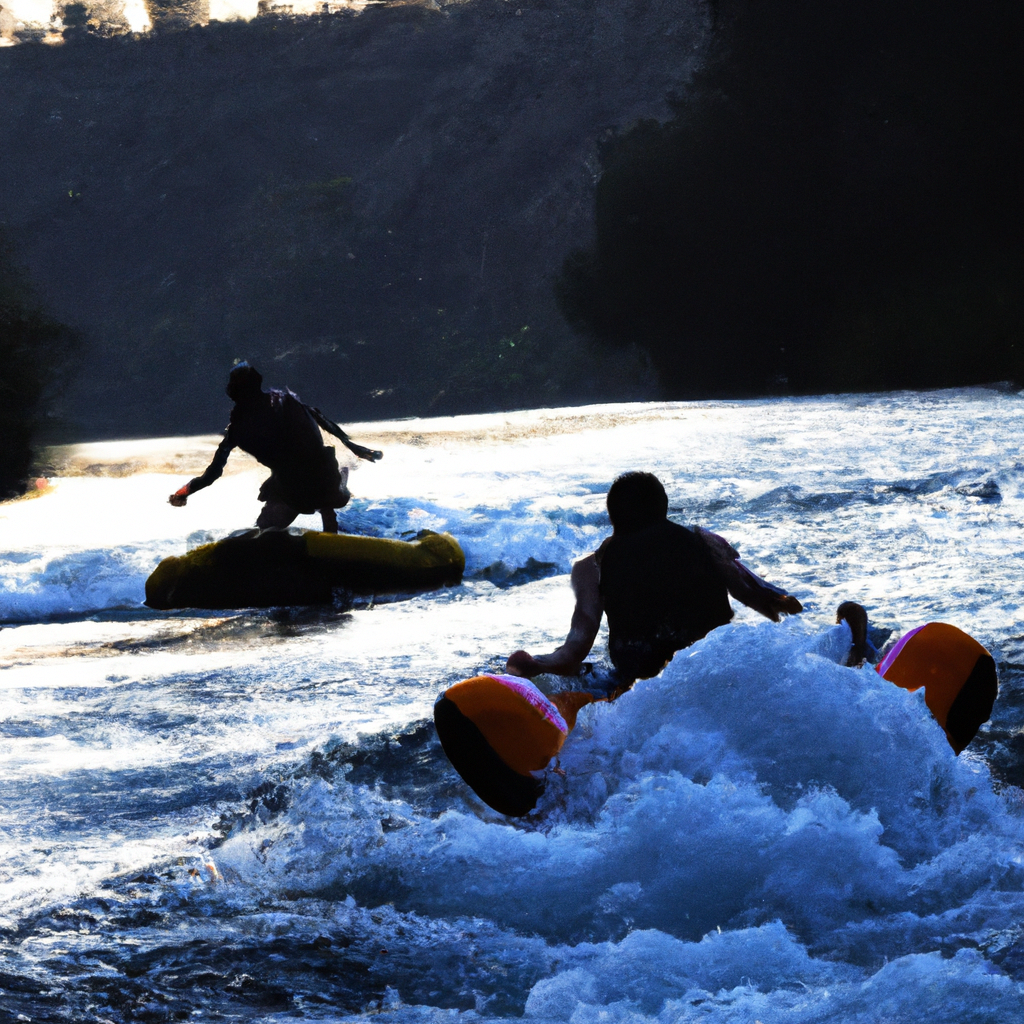Sailing for Fun: A Comprehensive Guide to Water Sports

An exciting combination of adventure, exercise and contact with nature, water sports have captured the imagination of fitness enthusiasts and adventure lovers alike. From water skiing to diving, paddle boarding and surfing, there is a water sport for every personality and skill level. However, entering this exciting world can be daunting for beginners, with a wealth of options available and technical details to consider. This article aims to be a comprehensive guide for those interested in water sports, providing an overview of the different sports, their basic rules and techniques, as well as tips and advice for practicing them safely. Welcome to the exciting world of water sports.
- 1. "Introduction to water sports: Everything you need to know"
- 2. "Detailed description of the different water sports"
- 3. "Basic rules and techniques of the most popular water sports"
- 4. "Tips and recommendations for practicing water sports safely"
1. "Introduction to water sports: Everything you need to know"
Encompassing a wide range of activities that take place on the water, water sports are an exciting way to enjoy nature while getting exercise and building coordination, balance and strength. From sailing to surfing, kayaking, rowing and diving, water sports offer a variety of experiences that can suit any skill level or interest. Whether you're looking for a relaxing hobby to enjoy the outdoors, a way to stay fit, or a competitive sport that tests your skills and endurance, there's a water sport for you. In this comprehensive guide, we'll give you all the information you need to get started, including an overview of the different water sports, the equipment required, basic rules and the best locations to practice them.
2. "Detailed description of the different water sports"
Water sports encompass a wide variety of activities, each with its own characteristics and requirements. Among the most popular is sailing, a sport carried out with boats propelled by the wind and divided into different categories according to the type of boat and the competition modality. Surfing, on the other hand, is the practice of sliding over the waves of the sea standing on a board, while bodyboarding is a similar modality but where the athlete lies on the board. Kayaking is a sport carried out in white water or open sea with a small, narrow boat handled with a two-bladed paddle. On the other hand, diving is the practice of submerging in water, either in the sea or in rivers, to explore the underwater world. There is also water skiing, where the athlete is towed by a boat while sliding over the water with skis. Finally, windsurfing is a combination of surfing and sailing, where the athlete slides over the water on a board with a sail attached.
3. "Basic rules and techniques of the most popular water sports"
Popular water sports such as sailing, surfing, kayaking and diving have well-defined basic rules and techniques that must be followed to ensure safe and fair practice. In sailing, for example, it is essential to know the “right of way” rules to avoid collisions on the water. Surfing, on the other hand, demands a deep knowledge of the waves and the ability to maneuver the board skillfully. Kayaking requires strength, endurance and navigation skills, while diving needs rigorous training in the use of underwater breathing equipment and buoyancy skills. Regardless of the sport, basic water safety knowledge is required, such as knowing how to swim and familiarity with distress signals in case of emergency.
4. "Tips and recommendations for practicing water sports safely"
Practicing water sports can be an exciting experience but can also be risky if you don't take the right safety precautions. Firstly, it's essential to know how to swim well and feel comfortable in the water. Before you jump into the water, make sure you're wearing the right safety equipment, such as a life jacket and helmet if necessary. Make sure you're aware of the specific rules and regulations of the sport you're practicing and the area you're in. Avoid drinking alcohol before and during water sports, as it can affect your judgment, coordination and ability to react to dangerous situations. Also, always be aware of weather and water conditions, as they can change quickly. Finally, it's always advisable to practice water sports in company, so that you can get help if necessary.
